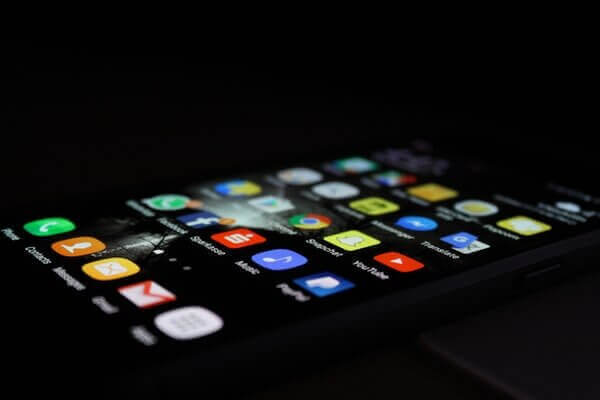Decluttering is exactly what it means – clearing up the mess that mostly comprises artefacts that no longer serve any practical use in your life. If you haven’t used something in over a year, it could be time to remove it from your living space.
Much of our lives are digital. If we’re cleaning up our physical space, why not our digital space? With physical clutter, you risk losing important things, but digital clutter could result in data theft or make your devices more vulnerable to cyber attacks.

Here are our 11 tips to help you embrace a digital declutter
1. Clean up your desktop
How many files do you have just sitting on your desktop? Take 10 minutes and file them into appropriate folders on your computer, in the cloud or dump them in the Recycle Bin. Move those files somewhere else that makes sense and leave your desktop clutter-free.
2. Empty your inbox
Which type of person are you? The one with hundreds or thousands of emails in their inbox, or the one that needs to have all emails neatly organised into categories? If you’re the former, now’s the time to clean your inbox. There is no better feeling on a Friday afternoon to see an empty or relatively empty inbox ahead of the weekend.
Unsubscribing from emails you don’t want or need anymore helps to prevent your inbox from clogging up with promotional emails. If you find you get lots of emails from one company and you want to delete them, search for the company name within your inbox and delete them by bulk.
3. Sort your bookmarks and Facebook saved posts
How many times have we bookmarked something intending to refer back, but we never do? Put aside some time, read the articles, take notes, watch the videos, and then get rid of the ones you don’t need! Categorise the ones you’re keeping in a way that makes sense to you.
4. Close the tabs
How many tabs do you have open on your Internet browser right now? Or how many windows? The answer is likely more than one. Close the ones you’re not using, read the ones you’ve kept open until you have some free time, and get those tabs down to a manageable amount that no longer feels overwhelming.
5. Get rid of notifications
Notifications can be distracting. Not all notifications require immediate action. Removing notifications for all except the important apps helps to keep you focused and complete your task list without being distracted. You can still check your emails, Facebook or any other apps, any time you like, you just don’t get notified when you have something new.
6. Empty your recycle bin
When was the last time you emptied your Recycle Bin on your computer? How many files are their currently in your Recycle Bin? It’s one of those functions that gets used often (delete!), but the next stage of permanent deletion from the device doesn’t often happen. So go and hit delete, and see how much space you get back!
7. Clear out your downloads folder
Similar to your Recycle Bin, the downloads folder is one that is often used but rarely cleared. Go through and work out what you need and don’t need. If you’re keeping it – file it appropriately. If you’re getting rid of it – move it to the recycle bin. And then don’t forget to go back and empty your Recycle Bin again.
8. Minimise your device apps
Search through the apps on your phone or tablet and take a look at what you have on there. How many do you use regularly and what can go? The less you have on your phone or tablet, the less cluttered it will feel. Sort your apps to check which apps are the least used. Sorting your apps into folders cuts down on the time needed to find the app you need.
9. Rearrange your folders
Are you constantly searching for documents that you know you’ve filed somewhere but can’t work out where? Chances are your filing system needs an overhaul. Think about what makes sense to you and what works for you, and start again. It might be time-consuming to set up, but once it’s done you’ll feel much better for it and save a lot of time moving forward.
10. Simplify your social media
Facebook can take up far more time than it should, so remove yourself from groups you no longer care about or turn off the notifications, unlike pages that aren’t of interest, and even remove friends you’re no longer in contact with. If you saw someone walking down the street and wouldn’t say hi, chances are they shouldn’t be on your friends list. Want to keep someone as a friend but don’t want them showing up in your newsfeed? Simply unfollow them instead. Same goes for Instagram, Twitter and anything else you’re on. If you don’t want to see their stuff anymore, just unfollow them. Done. Now you know when you log in, you’ll be seeing more of the information you really care about.
It takes time to gain time, but overall you’ll be gaining so much more by having a streamlined and effective system that works for you. You’ll feel less cluttered and more minimalistic, allowing you freedom from the constraints of technology.
11. Back up in the cloud
Save space on your computer by using a cloud storage system. These give you the ability to access your documents from any location with Internet access and provide you with the assurance that if anything happens to your computer, you won’t lose your files.
As an added bonus, having your files in the cloud will make it heaps easier when you’re working with a Virtual Assistant or Vendor and you both need to access the same file – you’ll both always have access to the latest version.